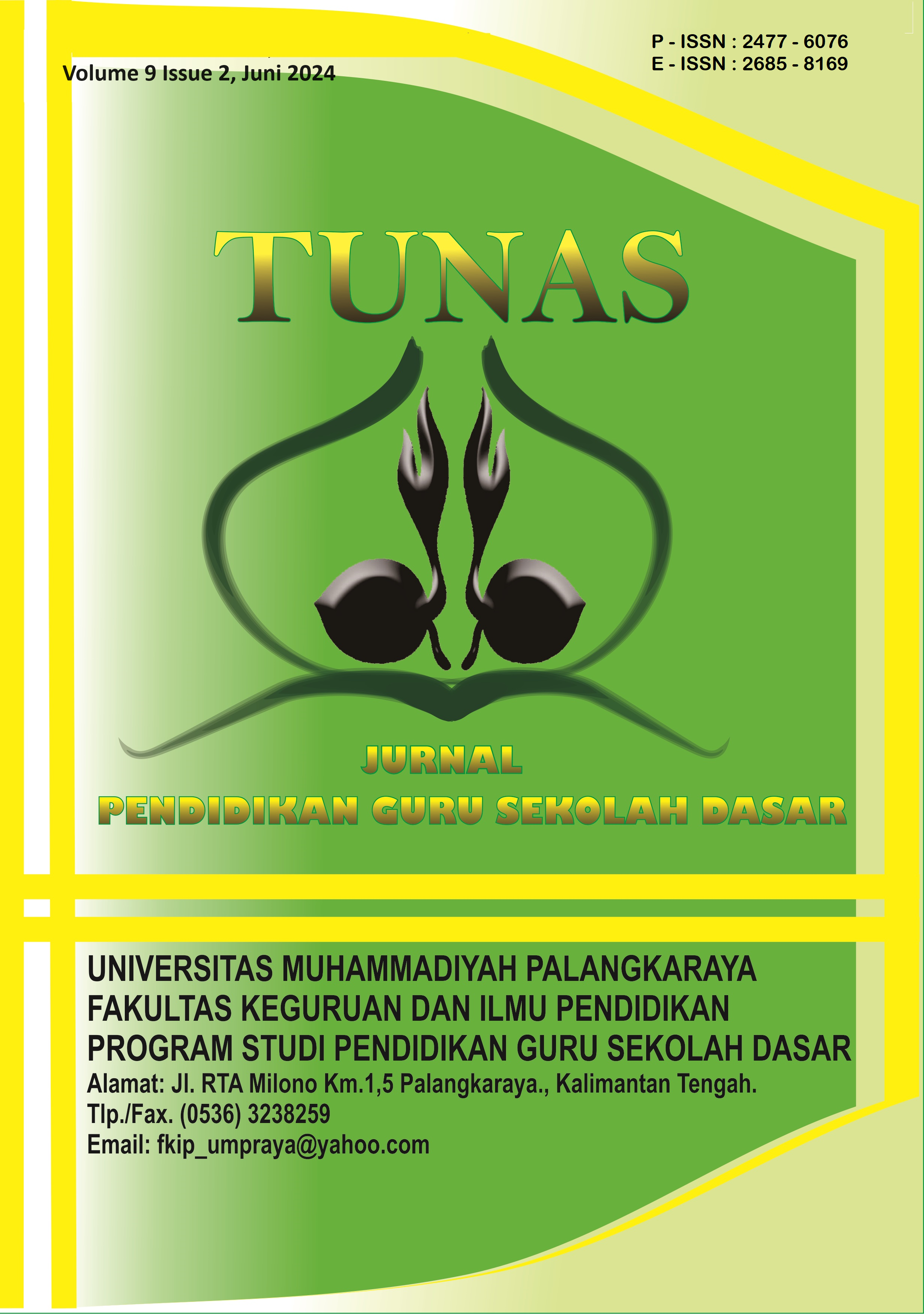Enhancing Learning Experience: A Study of Students' Needs for Pocket Books in the Digital Era
Main Article Content
Abstract
Background: the religious values play a crucial role in shaping the character and morals of students, and understanding the views of lecturers regarding this matter can provide profound insights to enhance higher education. Aim: Analyzing lecturers' perceptions regarding Islamic values entails focusing on their awareness levels, integration of religious values into the curriculum, the role of lecturers in shaping character, institutional support, and the influence of understanding Islamic values on students' morality. Method: This research employed a survey method involving 60 lecturers as respondents. The survey comprised structured questions covering the importance level of Islamic values, their integration into the curriculum, the role of lecturers, institutional support, and perspectives regarding the influence of understanding Islamic values on students. Results and Dıscussion: The survey results indicate that a majority of the lecturers are aware of the significance of Islamic values (91.6%), and most of them (80%) feel that these values are sufficiently integrated into the curriculum. There is substantial support for the role of lecturers in shaping Islamic character (88.4%), and a significant portion of the lecturers (78.3%) feel they receive adequate institutional support. Overall, the results reflect a positive outlook from the lecturers regarding Islamic values. Conclusion This research highlights the importance of supporting lecturers in strengthening their role as character-forming agents and emphasizes the necessity of integrating religious values into higher education curricula. The implications of these findings can assist in designing policies and more holistic educational strategies, fostering an educational environment focused on the development of student character and morality.
Downloads
Article Details

This work is licensed under a Creative Commons Attribution-ShareAlike 4.0 International License.
Authors who publish with this journal agree to the following terms:
- Any article on the copyright is retained by the author(s).
- The author grants the journal, right of first publication with the work simultaneously licensed under a Creative Commons Attribution License that allows others to share work with an acknowledgment of the work authors and initial publications in this journal.
- Authors are able to enter into separate, additional contractual arrangements for the non-exclusive distribution of published articles of work (eg, post-institutional repository) or publish it in a book, with acknowledgment of its initial publication in this journal.
- Authors are permitted and encouraged to post their work online (e.g., in institutional repositories or on their websites) prior to and during the submission process, as can lead to productive exchanges, as well as earlier and greater citation of published work.
- The article and any associated published material is distributed under the Creative Commons Attribution-ShareAlike 4.0 International License
References
Bintoro, T., Musdiani, M., Mardhatillah, M., Sari, S. M., Akmaluddin, A., & Filina, N. Z. (2022). PENGEMBANGAN BUKU AJAR BERBASIS SAKU PEMBELAJARAN MEMBACA PERMULAAN BAGI SISWA SD NEGERI LAMREH BANDA ACEH. Visipena, 13(1), 54–71. https://doi.org/10.46244/visipena.v13i1.2042
Hapsari, N. & Paidi. (2019). Development of An Observation Sheet Instrument to Measure Biology Teachers’ Ability of Pedagogical Content Knowledge (PCK) Application. Journal of Physics: Conference Series, 1241(1), 012032. https://doi.org/10.1088/1742-6596/1241/1/012032
Hasan, M., Supatminingsih, T., Mustari, Ahmad, M. I. S., Rijal, S., & Ma’ruf, M. I. (2020). The Development of Pocketbook Learning Media based on Mind Mapping in Introductory Economics Course. Universal Journal of Educational Research, 8(12B), 8274–8281. https://doi.org/10.13189/ujer.2020.082632
Mdhlalose, D., & Mlambo, G. (2023). Integration of Technology in Education and its Impact on Learning and Teaching. Asian Journal of Education and Social Studies, 47(2), 54–63. https://doi.org/10.9734/ajess/2023/v47i21021
Mulholland, E., & Bates, J. (2014). Use and Perceptions of E-books by Academic Staff in Further Education. The Journal of Academic Librarianship, 40(5), 492–499. https://doi.org/10.1016/j.acalib.2014.05.018
Nurfitri, Y., Retnowati, R., & Awaludin, M. T. (2022). Development of Digital Pocket Book for Disaster Mitigation Materials Coronavirus Disease 2019 (COVID-19) to Increase Student Resilience to Disasters. Journal Of Biology Education Research (JBER), 3(1), Article 1. https://doi.org/10.55215/jber.v3i1.3651
Paek, S., & Fulton, L. (2021). Digital Science Notebooks: A Tool for Supporting Scientific Literacy at the Elementary Level. TechTrends, 65(3), 359–370. https://doi.org/10.1007/s11528-020-00579-0
Pasaribu, F. T., & Ramalisa, Y. (2022). Quizizz’s Augmented Reality (AR) Based Mathematics Digital Pocketbook Design Using GOLD (Guided, Organizing, Leaflet, Discovery) Learning Model. Logaritma : Jurnal Ilmu-Ilmu Pendidikan Dan Sains, 10(01), Article 01. https://doi.org/10.24952/logaritma.v10i01.4567
Saphira, H. V., Prahani, B. K., Jatmiko, B., & Amelia, T. (2023). The emerging of digital revolution: A literature review study of mobile and android based e-pocket book in physics learning. Advances in Mobile Learning Educational Research, 3(1), Article 1. https://doi.org/10.25082/AMLER.2023.01.020
Sarliana, S., Tondong, H. I., Kaparang, M. J., & Usman, H. (2023). The Giving of Stunting Pocketbooks as a Health Education Tool for Women of Childbearing Age in an Effort to Prevent Stunting. Jurnal Aisyah : Jurnal Ilmu Kesehatan, 8(1), Article 1. https://doi.org/10.30604/jika.v8i1.1532
Srideviponmalar, P., Wagle, S. A., Harikrishnan, R., & Sawant, R. (2023). Digital-Based Learning in Indian Government’s Higher Education: Initiatives and Insights. In S. Tanwar, S. T. Wierzchon, P. K. Singh, M. Ganzha, & G. Epiphaniou (Eds.), Proceedings of Fourth International Conference on Computing, Communications, and Cyber-Security (pp. 327–341). Springer Nature. https://doi.org/10.1007/978-981-99-1479-1_25
Suhardi, S. (2023). MOBILE LIBRARY APPLICATION MODELING FOR STRENGTHENING DIGITAL-BASED STUDENT’S READING WRITING INTEREST. Sinkron : Jurnal Dan Penelitian Teknik Informatika, 8(1), Article 1. https://doi.org/10.33395/sinkron.v8i1.11922
Tekin, M., Baş, D., Geçkil, T., & Koyuncuoğlu, Ö. (2020). Entrepreneurial Competences of University Students in the Digital Age: A Scale Development Study. In N. M. Durakbasa & M. G. Gençyılmaz (Eds.), Proceedings of the International Symposium for Production Research 2019 (pp. 593–604). Springer International Publishing. https://doi.org/10.1007/978-3-030-31343-2_52
